Ata-ul-Haye Nasir, Al Hakam
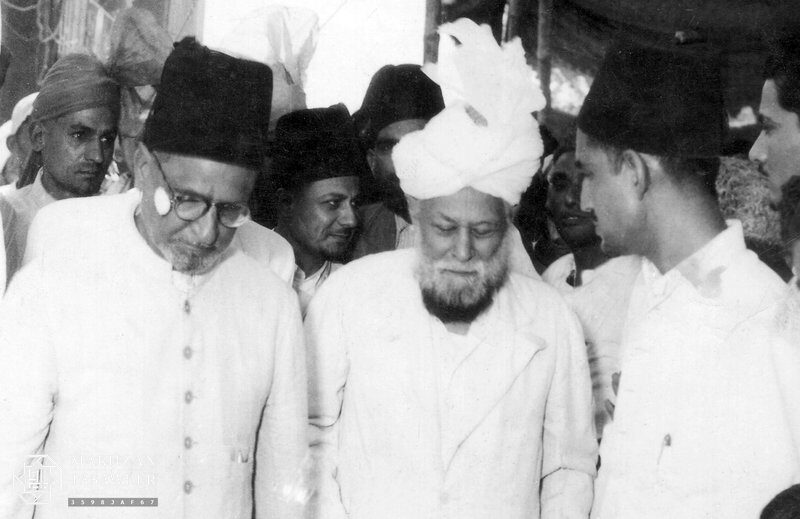
On 24 January 1940, Hazrat Musleh-e-Maud, Mirza Bashiruddin Mahmud Ahmadra began his journey from Qadian to visit Sindh and Delhi. (Al Fazl, 26 January 1940, p. 2)
During his stay there, Huzoorra went to Delhi on 5 February and stayed at the house of Hazrat Sir Chaudhry Muhammad Zafrulla Khanra. After two days, Huzoorra returned to Karachi. (Al Fazl, 8 February 1940, p. 2)
A reception in Karachi
On 16 February 1940, Captain Sultan Ahmad Sahib Khatana organised a tea party in honour of Hazrat Musleh-e-Maudra. The event was also attended by various dignitaries, including the Consul of Iraq Al-Sheikh Kadhim al-Dujaili, Secretary Iraq Consul, president of Khoja Community Muhammad Abdullah, ICS Retired Commissioner Mr Halifax, Agent Bahrain Petroleum Company Mr Knighten, Mrs Knighten, and various officers from the civil Censor Department.
After having the tea, the host, Captain Sultan Ahmad Sahib Khatana, presented an address to Hazrat Musleh-e-Maudra. After this, Huzoorra delivered a short speech, in which he shed light on the need and importance for the people of India to cooperate with the government during the ongoing war, i.e., World War II. (Al Fazl, 23 February 1940, p. 2)
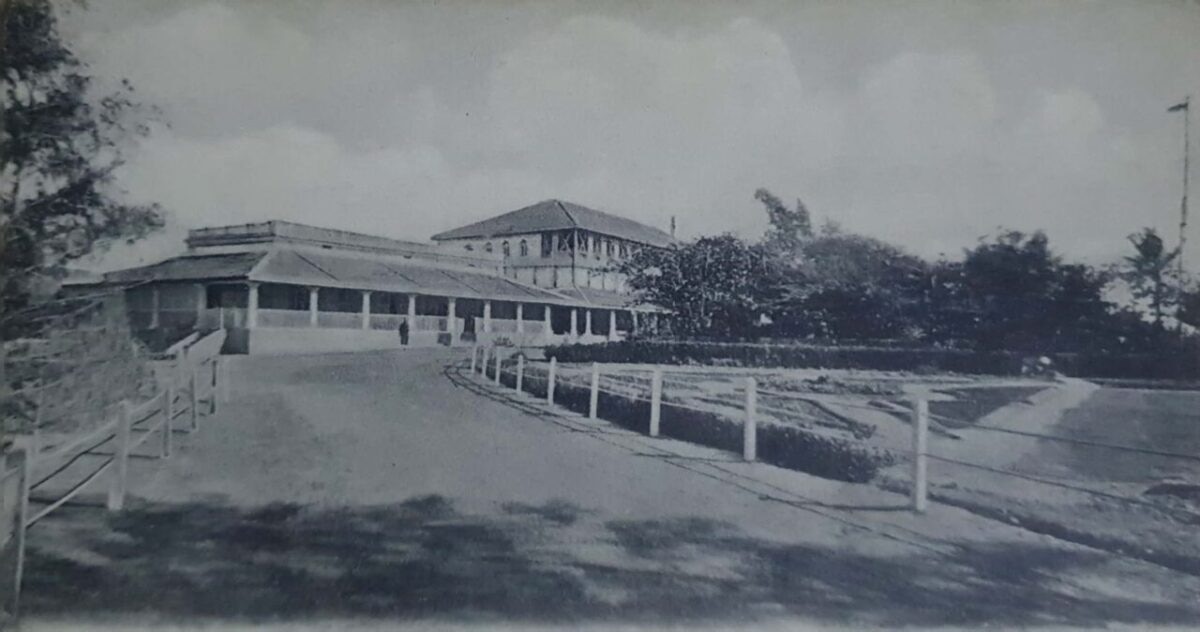
Huzoor’s article broadcast on All-India Radio Station
The officials of the All-India Radio Station Bombay (now Mumbai) requested Hazrat Musleh-e-Maudra to write an article to be broadcast on the radio. Therefore, Huzoorra wrote an article, “Mein Islam ko kiun maanta hun” (Why I believe in Islam), which was broadcast from the broadcasting station in Bombay on 19 February 1940, at 8:30pm local time. Prior to and after the broadcast, the radio administration apologised to the listeners that, for some reason, they were unable to listen to Huzoor’sra speech in his own words, and someone else had to read it out.
In Qadian, a radio set was arranged, with the permission of Nazarat-e-Talim-o-Tarbiyat, and men and women – with arrangements for purdah – listened to this broadcast. (Al Fazl, 21 February 1940, p. 2)
This article was published in The Review of Religions [Urdu] in March 1940.
In this article, Huzoorra said:
“I have been asked by the Bombay Radio Station to state why I believe in Islam. When I put this very question to myself, the reply I received was, ‘For the same reason for which I believe in anything else’, that is to say, because it is the truth.
“A more detailed reply would be that, in my view, the central doctrine of all religions is the existence of God. A religion that can succeed in establishing a true relationship between God Almighty and mankind must be true, and the truth of a certain thing is surely a sufficient reason for believing in it. […]
“Islam claims that the Creator of this universe is a living God and that He reveals Himself to His servants in this age in the same manner in which He used to reveal Himself in previous eras. This claim can be tested in two ways. God Almighty may either manifest His signs directly for a seeker after Him, or the seeker may come to believe in God by studying the life of a person to whom God Almighty has revealed Himself. As by the grace of God Almighty, I happen to be among those to whom Allah the Almighty has on many occasions and in an extraordinary way revealed Himself, I stand in need of no further reason for believing in the truth of Islam than that I have myself experienced the truth.
“For the benefit of those who have had no similar experience, I now proceed to present the arguments that, in addition to my personal experience, have been the cause of my belief in Islam.
“Firstly, I believe in Islam for the reason that it does not compel me to accept all those matters, the sum total of which is called religion, but rather furnishes convincing arguments in support of its doctrines. The existence of God, His attributes, angels, prayer [du‘a] and its impact, Divine decree and their sphere, worship and its need, sharia [Divine Law] and its benefits, revelation and its importance, life after death, heaven, and hell — with regard to every one of these, Islam has given detailed explanations and has established their truth with strong arguments to the satisfaction of the human intellect. Hence, it furnishes me not only with Faith, but also with the certainty of knowledge, which satisfies my intellect and compels it to admit the need for religion.
“Secondly, I believe in Islam as it does not base its claims merely upon theories, but invites everyone to a personal experience of that which it teaches and guarantees. It claims that every truth, in some manner or another, can be assessed in this world, and thus, it satisfies my heart.
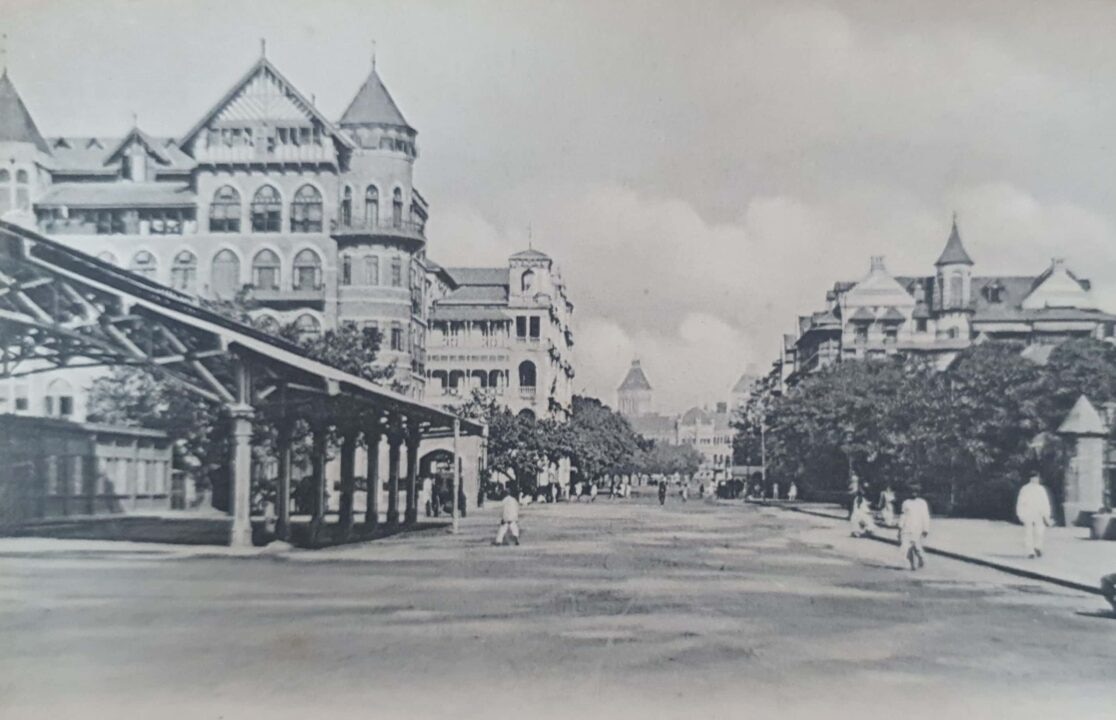
“Thirdly, I believe in Islam, as it teaches that there can be no conflict between the Word and Act of God Almighty, and thus resolves the supposed conflict between science and religion. It does not ask me to ignore the laws of nature and to believe in things that are contrary to them. On the contrary, it exhorts me to ponder over the laws of nature and derive benefits from them. It teaches me that, as revelation comes from God, who is also the Creator of the universe, there can be no conflict between His Word and Act. It, therefore, invites me, in order to understand His revelation, to study His Act, and in order to realise the significance of His Act, to study His word, and thus satisfies my intellectual yearning.
“Fourthly, I believe in Islam, as it does not seek to crush my desires but guides them along the right path. It does not, by altogether crushing my desires and sentiments, reduce me to a stone; nor does it, by leaving them uncontrolled and unrestrained, reduce me to an animal, but, like an expert irrigation engineer who harnesses uncontrolled waters and makes them run into irrigation channels, thereby bringing prosperity to barren areas, Islam converts my desires and sentiments, through guidance, into high moral qualities. It does not say to me: ‘God has given you a loving heart but forbids you to choose a life companion, or that He has endowed you with the sense of taste and the capacity to appreciate good food, but has forbidden you to eat such food.’ On the contrary, it teaches us to have love, but in a pure and lawful way, which would ensure that one’s pious objectives live on forever through their progeny. It permits me to eat good food, but within proper limits, lest I eat my fill and my neighbour goes hungry. […]
“Fifthly, I believe in Islam for the reason that it has dealt justly and lovingly not only with me but with the whole world. It teaches me not only to discharge my duties towards myself but also insists upon my dealing fairly with every other person and thing in the world, and has furnished me with the required guidance for this purpose. For instance, it draws attention to the rights of parents and the duties that children owe to their parents. It admonishes the children to behave obediently and tenderly toward their parents, and has made the latter heirs to that which the former may leave. On the other hand, it enjoins love and affection upon the parents for their children and commands them about their duty of bringing up their children well, training them in good moral qualities and looking after their health, and has also made them, to a certain extent, heirs to their parents. Similarly, it enjoins the best relationship between husband and wife and requires each to have due consideration for the sentiments of the other. This was put beautifully by the Holy Foundersa of Islam when he said: […]
[خِيَارُكُمْ خِيَارُكُمْ لِنِسَائِهِمْ]
“‘The best of you are those who are best to their wives.’ [Sunan Ibn Majah, Kitab a-Nikah, Hadith 1978]
“He stated on another occasion that women’s nature is as delicate as the glass, thus, one should treat women with as much care as they do when carrying glass. [Sahih al-Bukhari, Kitab al-Adab, Hadith 6149]
“Islam has also not ignored the rights of the women, and laid special stress upon their education and [the Holy Prophetsa] has said that the one who educates his daughter and carries out her tarbiyat in a good manner, thereby earning paradise. [Sunan Abi Dawud, Kitab al-Adab, Hadith 5147] Islam has made daughters the heirs of their parents.
“Again, it has laid down fair rules for the guidance of the rulers and the ruled ones. It says to the rulers that the authority vested in them is not their ownership, but rather a trust and that they should discharge the obligations of that trust to the utmost, like upright and honest people, and should carry on government in consultation with the people. It says to the ruled ones that the power to choose your rulers has been bestowed upon you as a gift from God Almighty and you should, therefore, be careful to invest only such persons with governing authority as fully deserve it, and after vesting this authority in them, you should give them your fullest cooperation and should not rebel against them, for if you do so, you are merely seeking to demolish that which your own hands have built.
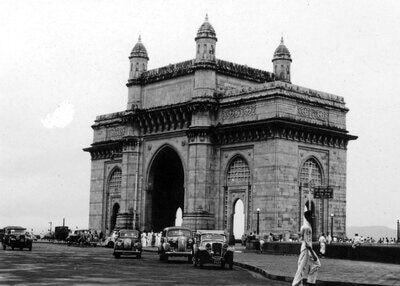
“It has also regulated the rights and duties of the employer and employee. It says to the employer: ‘You must render to the employees their full due even before their perspiration is dry on their body and should not look down upon those who work for you, for they are your brothers whose care has been entrusted to you by God Almighty and they are the true supporters of your prosperity. You should, therefore, not be so foolish as to seek to destroy that which constitutes your own support and the basis of your power.’ It says to the employees: ‘When you are engaged to execute a piece of work for someone, you should discharge your obligation honestly and with due care and diligence.’
“It says to those who have been endowed with an abundance of physical health and strength that they should not behave oppressively towards the weak, nor treat contemptuously those who suffer from some physical defect of blemish; for these ought to excite one’s mercy rather than one’s contempt.
“It says to the wealthy: ‘You have been charged with the duty of looking after the poor and you must set aside one fortieth [2.5%] of your substance for the government every year so that it may be employed in the relief of the poor ones.’ It teaches them not to enhance the disabilities of the poor by lending money to them on interest but to help them with your wealth, since [God] has not granted you the wealth to spend a luxurious life, but rather, to utilise it for the advancement of the world, which will make you deserving of the best reward here and in the Hereafter.
“On the other hand, it also teaches the poor not to look with envy and longing upon that which has been given to other people, as these feelings gradually pollute one’s heart and disable them from developing good qualities, but rather, they should create within them those talents that will help them attain progress of all kinds. It directs governments to afford facilities for the poorer sections of the community for such advancement and not to permit all wealth and power to be concentrated in a few hands.
“It reminds those whose ancestors had attained dignity and honour as the result of noble efforts that it is their duty to maintain that dignity and that honour with their own noble efforts, and it warns them against looking down upon others who have not been blessed in the same way, as God has made all mankind equal. It reminds them that God, who has bestowed these honours upon them, can bestow greater honours upon others, and thus, if they misuse their position and transgress against those who have not been similarly endowed, they will be laying the foundations for future transgressions against themselves by those who are now transgressed against. They should, therefore, take no pride in proclaiming their own greatness, but should take pride in helping others to become great, for true greatness belongs only to those who try to raise the fallen ones to greatness.
“Islam teaches that a country or nation should not hold animosity towards the other, nor should they transgress against each other, but rather, all of them should strive in unison for the world’s progress. It should not be the case that certain nations, countries, and individuals conspire against other nations, but rather, they should covenant with each other to restrain each other from aggression and to cooperate with each other in advancing those that are backward.
“In short, I find that Islam provides means of peace and comfort for me and for all those who may wish to tread the path prescribed by it, whoever they may be, whatever they may be and wherever they may be. In whatever position I place myself, I find that Islam is equally useful and beneficial for myself, for my relatives, for my neighbours, for people whom I do not know and have not even heard of, for men and for women, for the aged and for the young, for the rich and for the poor, for great nations and for small, for those who desire the unity of nations and for those who are nationalists, and that it establishes a sure and certain relationship and connection between me and my God. Therefore, I believe in it and how indeed could I give it up and accept something else in its place.” (The Review of Religions [Urdu], March 1940, pp. 26-31; Anwar-ul-Ulum, Vol. 15, pp. 605-612)
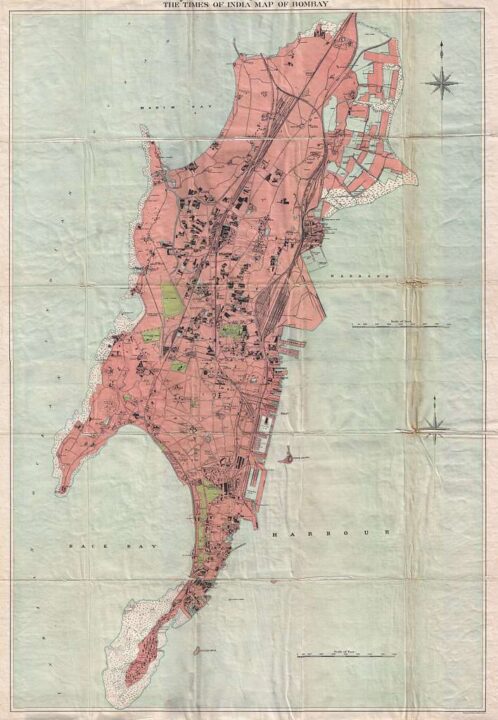
Another reception in Karachi
On 29 February 1940, the Premier of Sindh, Khan Bahadur Sir Allah Baksh Muhammad Umar Soomro, organised a reception in honour of Hazrat Musleh-e-Maudra. The event was also attended by various dignitaries, including the Minister for Law and Order Sir Ghulam Hussain Hidayatullah, the Minister of Education Pir Ilahi Buksh, the former mayor of Karachi Mr Hatim A Alvi, and MLA Mr Jamshed Nusserwanjee Mehta. (Al Fazl, 6 March 1940, p. 2)
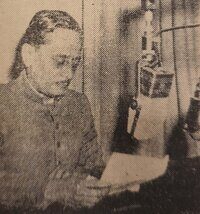
Visit to various other places
Following this reception, Huzoorra visited various other places in Sindh. Huzoorra reached Nasirabad on 1 March 1940, where he inaugurated a mosque with Jumuah prayer. During his Friday Sermon, Huzoorra called the attention of the local Ahmadis towards their responsibilities in relation to the mosque. (Al Fazl, 6 March 1940, p. 2)
After staying in Nasirabad for some days, Huzoorra returned to Qadian on 11 March 1940. (Al Fazl, 13 March 1940, p. 2)
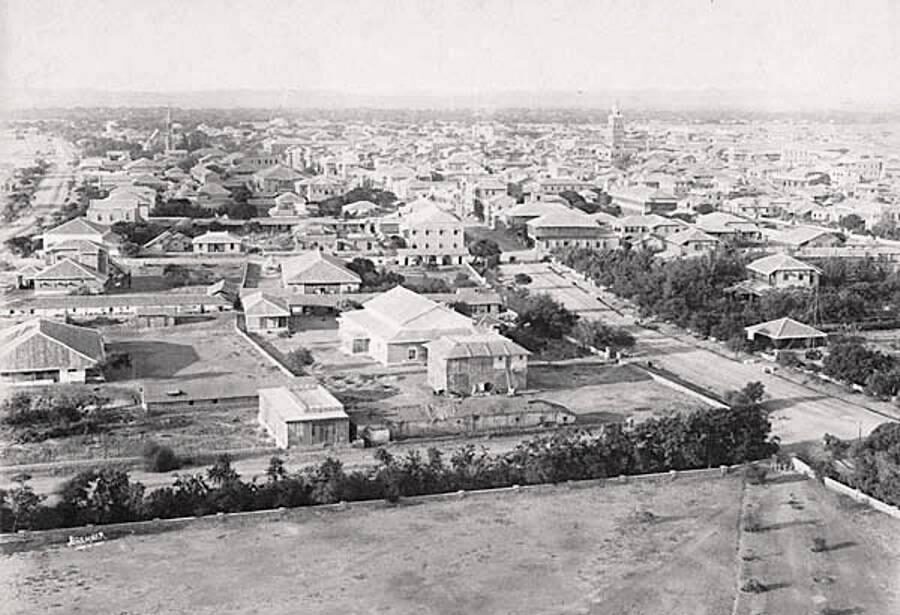
A poem about the Moon
In the first week of May 1940, Hazrat Musleh-e-Maudra began another journey to Sindh, and reached Karachi on 5 May. (Al Fazl, 7 May 1940, p. 2)
One day during this visit, Hazrat Musleh-e-Maudra took an evening walk along the coast of Karachi. The Moon was shining brightly that night and as a result, Huzoorra spontaneously began to utter couplets in relation to the moon, Allah the Almighty, and World War II. The couplets were later published as a poem titled “Chaand, Mera Chaand” (Moon, My Moon). The poem opens with:
يوں اندھيری رات ميں اے چاند تُو چمکا نہ کر
“Oh, moon! In the darkness of night, do not shine so bright!” (Al Fazl, 6 July 1940, pp. 1-2)
Huzoorra, when publishing the poem, also wrote a prologue to the couplets and how they developed as he walked along the Clifton Coast. Its details have already been published in an earlier Al Hakam article titled “‘O Moon of the dark night’: A walk along the coast and lessons on life by Hazrat Musleh-e-Maudra” (Al Hakam, 21 February 2020, Issue 101, p. 16).
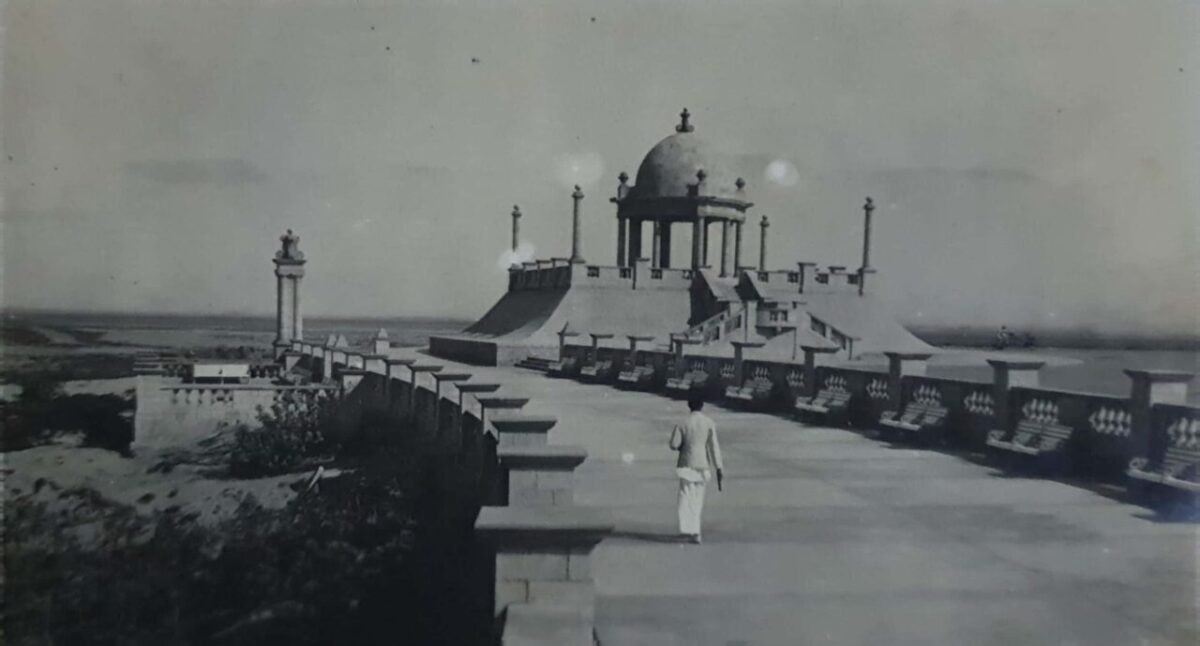
Return to Qadian
Hazrat Musleh-e-Maudra returned to Qadian on 25 May 1940. (Al Fazl, 28 May 1940, p. 2)

